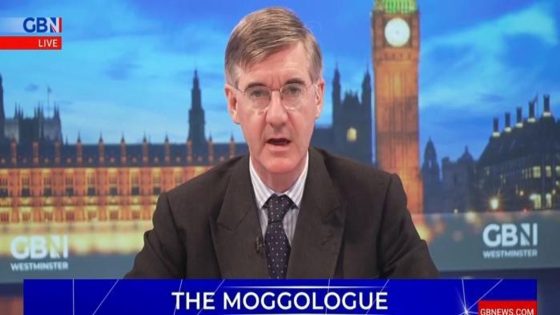Sir Jacob Rees-Mogg has said the behaviour of the government to coerce people into having Covid-19 vaccines damaged confidence and encouraged conspiracy theories.
The former Business Secretary said governments should provide people with the facts to make their own decisions instead of terrifying them into lockdowns.
Speaking on GB News Sir Jacob Rees-Mogg said: “I want to use the news that AstraZeneca has begun a worldwide withdrawal of its COVID vaccine to talk about the importance of honesty and frankness in government.
“AstraZeneca has said the withdrawal was a commercial decision. Whatever the truth, the move has come only days after the company admitted for the first time that its vaccine could, in very rare cases, cause fatal blood clots.
“I firmly believe the rollout of the vaccine was the right decision. It was an intervention that saved many lives and helped pave the road out of lockdown.
“However, the government labelled the vaccine is safe and effective and those who did not want to take it were threatened with the loss of basic freedoms and liberties.
“The vaccine was, and remains for the overwhelming majority of the population, safe. Yet we’ve always known that all medical interventions carry some form of risk. We know it now and we knew it then and these were downplayed.
“So regardless of how rigorous the safety regulations were, the vaccine was new and lacked long term data. Whilst the rollout was, on the whole, successful, we now know that they were not as effective as we first hoped. And although the side effects were rare, they were real.
“A well-intentioned government was using an element of coercion to increase vaccine take up and therefore the second order effects of a lack of transparency have been damaging to confidence and have encouraged some of the conspiracy theories.
“So while over egging the pudding may solve a problem in the short term, it can create more in the long term. This is true in human affairs generally from personal lives to the administration of nations and empires. And the more government is shown to lack frankness, the less cooperation it will ultimately secure from a population.
“And this could have very serious consequences if, for example, a contagion more serious, more deadly than COVID-19 were to hit these shores, people would be less likely to listen to what the governments say.
“And it encourages conspiracy theories. Many people write to me about these conspiracy theories of things that really weren’t happening. But when the risks are downplayed, people are more likely to believe in it.
“The danger of conspiracy theories is it encourages people to assume that the truth is routinely hidden and that nothing is as it seems, which isn’t generally true, partly because governments aren’t clever enough.
“But it ends up being calamitous because it’s so negative, and it lowers trust in society as a whole. And a high level of social trust is essential for a healthy and prosperous society.
“So authorities should learn from this and should refrain from using the COVID response as a model for future crises. Individuals should be given the facts, the risks as well as the good information to allow them to make their own choices.
“We should never have those sorts of lockdowns that people were terrified into. Parents must never again be banned from their children’s funerals.
“And this goes for national governments as well as bodies such as the World Health Organisation.
“On the topic of the WHO, the government is absolutely right to refuse to sign up to its Pandemic Treaty, which would see us bound to share medical supplies in a global stockpile, undermining our national sovereignty and giving it to a body that just dismissed the risk of COVID coming from a laboratory in Wuhan. It just dismissed out of hand so it’s an unreliable body to start with.
“In 2016 people voted for national sovereignty when they chose to leave the European Union. They don’t want to give it up to a bunch of bureaucrats in the WHO. Enacting the will of the people is a step in the right direction for the restoration of trust and honesty and accountability in politics.”
WATCH ABOVE.
Source Agencies

